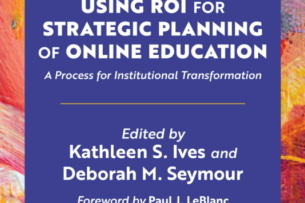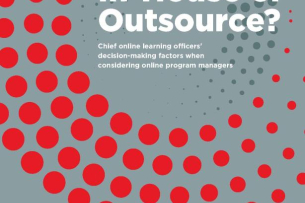Filter & Sort

Analyzing the Return on Investment for Online Education
Authors of a new book discuss why colleges should gauge the return on investment for online learning and the cultural impediments to doing so.

Berkeley (Finally) Agrees to Make Online Content Accessible
Disability rights advocates welcome news of Berkeley’s consent decree with the Justice Department, which many consider long overdue.

Clarity, Confusion on ‘Regular and Substantive Interaction’
The Education Department has left room for online colleges to innovate while maintaining eligibility for federal financial aid. But the lack of clarity carries some risk that colleges could run afoul of unarticulated rules.

Wikipedia, Once Shunned, Now Embraced in the Classroom
Professors who incorporate Wikipedia-editing assignments into coursework enhance their students’ digital literacy skills while broadening their own roles—from educating college students to educating society.

Admissions Dean Under Investigation for Alleged Discrimination
Former employees of the Tufts admission office allege their higher-ups discriminated against staff of color. The university has hired an outside law firm to investigate.

How COVID Spurred Digital Innovation and Empathy
In the early pandemic, educators rallied to provide academic continuity in unprecedented ways. That spurred online teaching innovations, many of which are worth preserving and enhancing, a Stanford self-study says.

When to Outsource Online Learning, and When Not To
A report explores how online learning leaders decide whether to use companies to deliver and manage their academic programs or handle the work in house.

A Surge in Young Undergrads, Fully Online
Tens of thousands of 18- to 24-year-olds are now enrolling at Western Governors, Southern New Hampshire and other national online institutions. Does this represent a change in student behavior?
Pagination
Pagination
- 16
- /
- 224